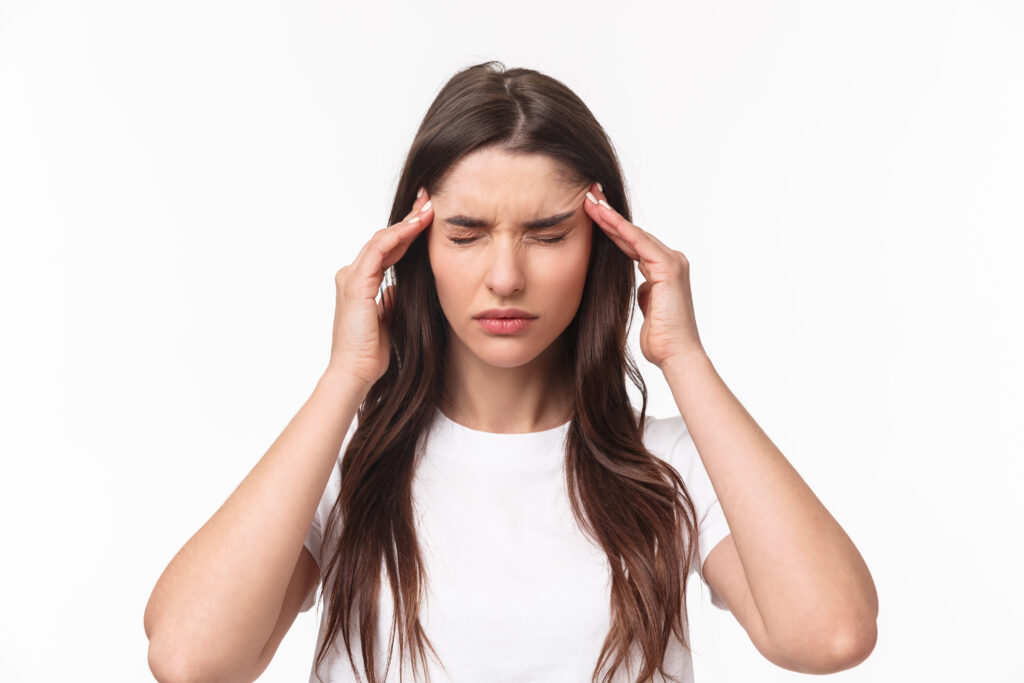
Anxiety and stress are common issues in today’s fast-paced world, and many people struggle with them on a daily basis. With an increasing desire to find natural and holistic ways to manage these conditions, herbal teas have grown in popularity as a gentle yet effective treatment.
This blog post will look at ten powerful herbal teas that have been shown to reduce anxiety and stress, offering a natural alternative to conventional treatments.
Table of Contents
Toggle1. Chamomile Tea (herbal tea)
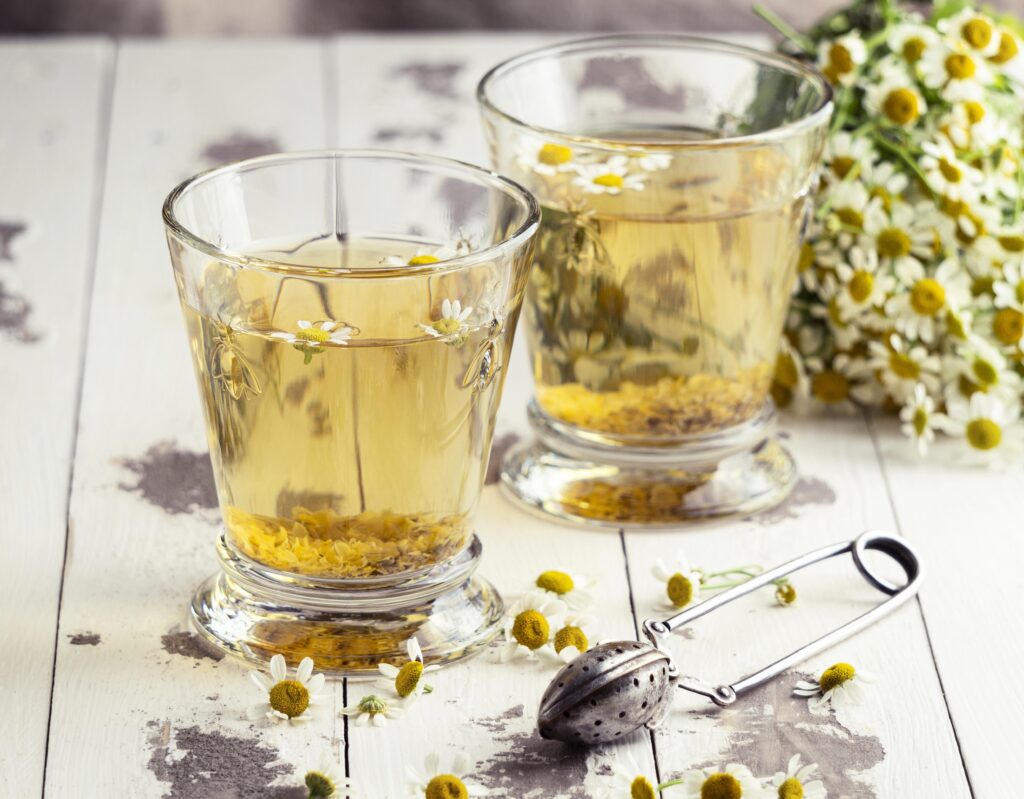
Chamomile tea is well-known for its calming properties and ability to improve sleep quality, making it an attractive option for those looking to reduce anxiety and stress. According to studies, chamomile contains apigenin, an antioxidant that binds to specific brain receptors, promoting relaxation and reducing insomnia.
Preparation: To make chamomile tea, simply steep a tea bag or a tablespoon of dried chamomile flowers in hot water for 5-10 minutes. You can add a slice of lemon or a drizzle of honey to add more flavor.
A cup before bedtime can help you relax and sleep soundly.
2. Lavender Tea
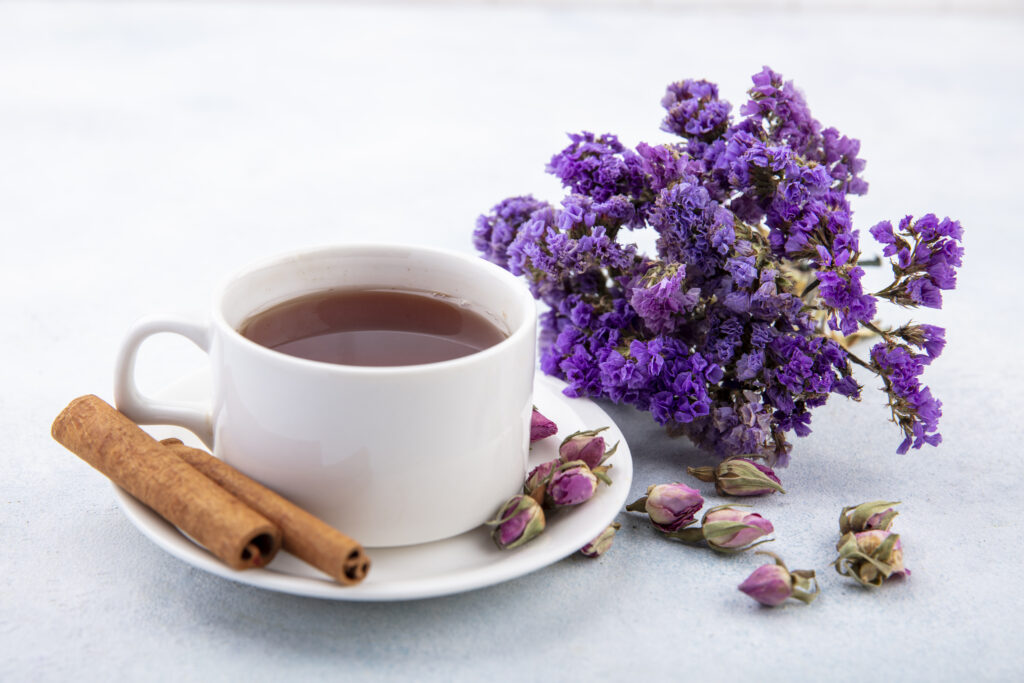
Lavender tea is renowned for its soothing properties, making it an excellent choice for reducing stress and promoting relaxation. The fragrant, floral notes of lavender not only provide a calming aroma but also contribute to its anxiolytic effects. Scientific studies have shown that lavender can significantly reduce anxiety levels, enhance mood, and improve sleep quality, thanks to its active compounds like linalool and linalyl acetate.
Preparation: To prepare a cup of lavender tea, simply steep one to two teaspoons of dried lavender buds in hot water for about 5-10 minutes. Strain and enjoy this fragrant infusion, which can help you unwind and find peace amidst the hustle and bustle of daily life
3. Peppermint Tea
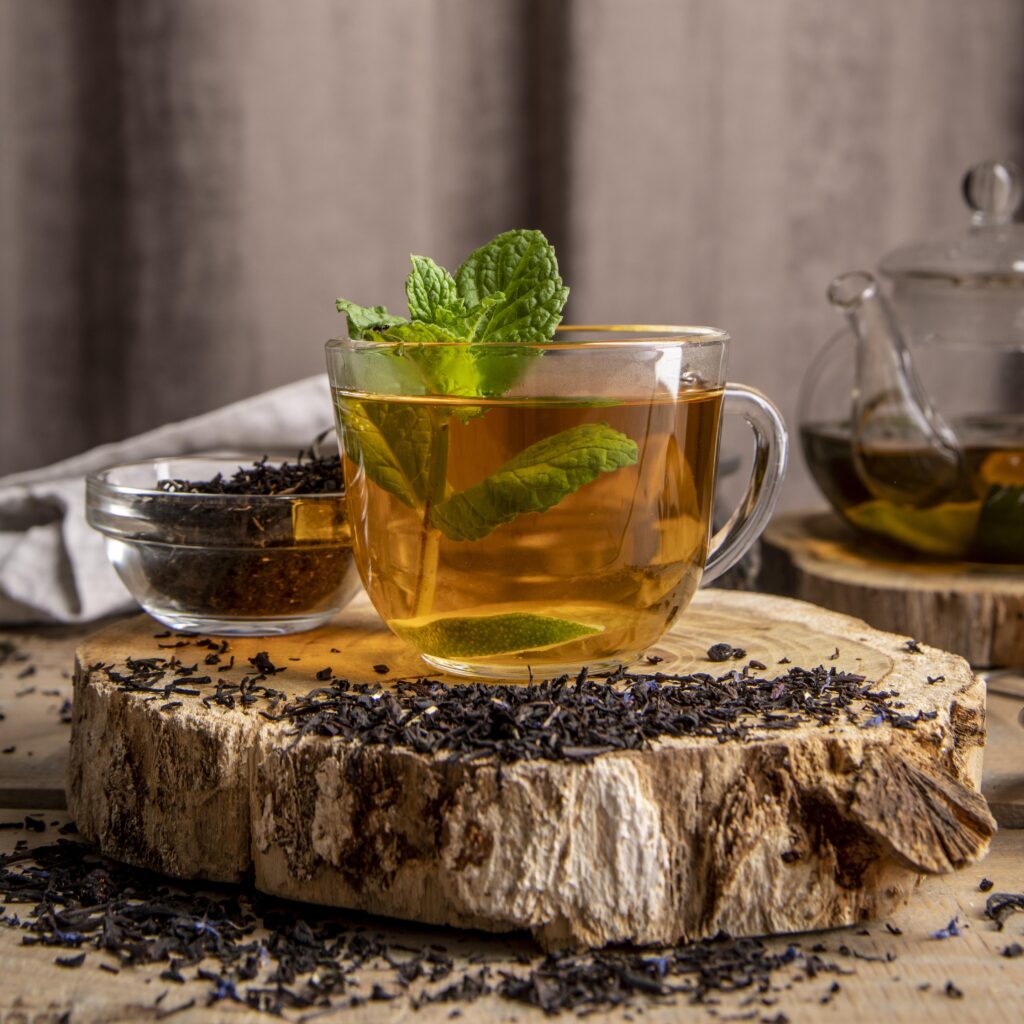
Peppermint tea is a popular herbal remedy for stress relief and digestive health. The soothing aroma and natural compounds in peppermint help to relax the mind, making it an effective natural stress reliever. Peppermint tea also aids digestion by relaxing the muscles of the gastrointestinal tract, which can help relieve symptoms such as bloating and indigestion. According to scientific studies, peppermint has a positive effect on the nervous system, reducing anxiety and improving mood.
Preparation: To make peppermint tea, steep a handful of fresh peppermint leaves or a tea bag in hot water for 5-10 minutes, then strain and enjoy. This refreshing beverage can be enjoyed both hot and cold, making it a versatile option for promoting relaxation and digestive comfort.
4. Lemon Balm Tea

Lemon balm tea is a calming herbal infusion known for its remarkable ability to improve mood and cognitive function. Lemon balm, which contains rosmarinic acid, helps to increase GABA levels in the brain, promoting a calming effect and reducing anxiety. Lemon balm has been shown in studies to significantly reduce anxiety symptoms and increase mental clarity, making it an excellent natural stress reliever.
Preparation: To make this tea, steep 1-2 teaspoons of dried lemon balm leaves in a cup of boiling water for 10 minutes. Strain and enjoy this refreshing beverage, preferably before bedtime, to promote relaxation and sleep.
5. Passionflower Tea
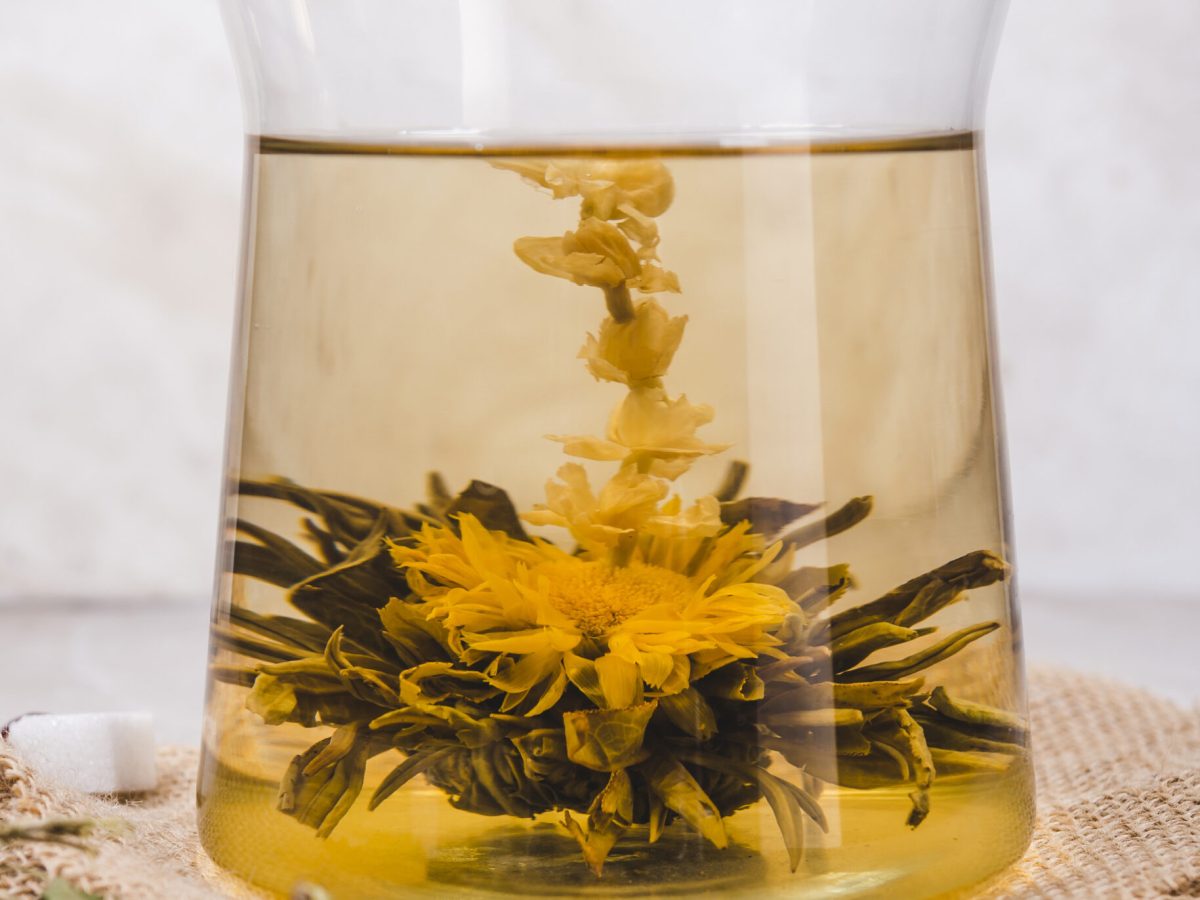
Passionflower tea is a natural remedy for reducing anxiety and improving sleep. Clinical studies support passionflower’s calming effects, which show that it can reduce anxiety levels by acting on neurotransmitters in the brain, similar to prescription medications but without the sedative effects. According to research, it improves sleep by increasing GABA levels, which help regulate sleep cycles.
Preparation: To make passionflower tea, steep 1-2 teaspoons dried passionflower in boiling water for 10 minutes, strain, and serve warm. It’s a soothing option for unwinding and relaxing before bedtime.
6. Green Tea
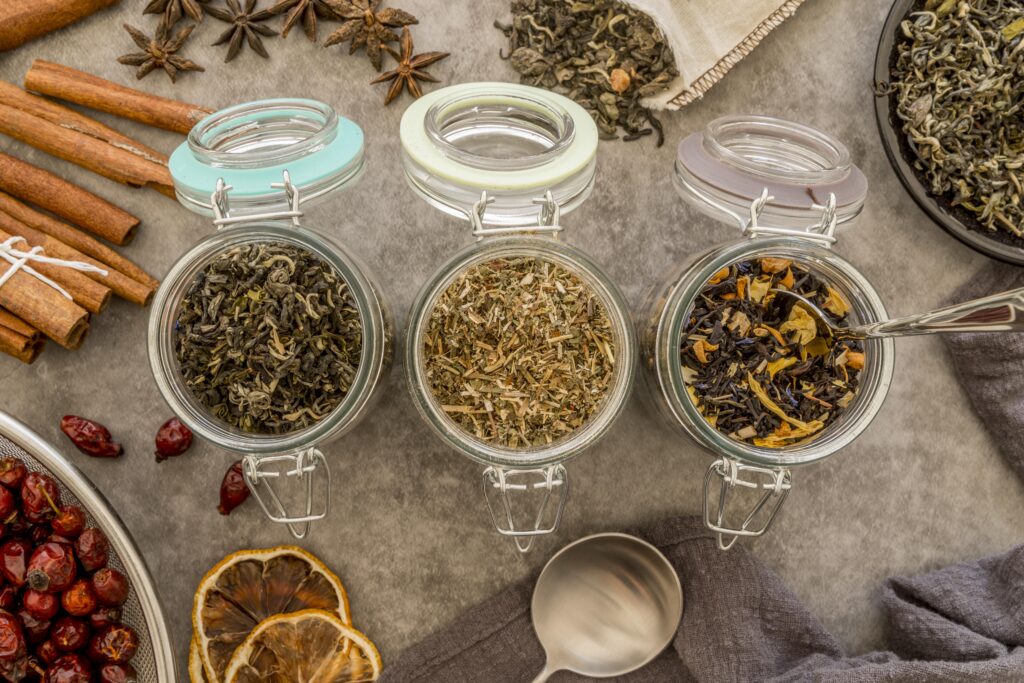
Green tea contains the amino acid L-theanine, which is known for its calming effects on the mind and body. This compound alleviates stress and anxiety by encouraging relaxation without causing drowsiness. According to scientific studies, L-theanine in green tea can increase alpha wave activity in the brain, which is associated with relaxed alertness. Drinking green tea on a regular basis may help to reduce stress and improve overall mental health.
Preparation: To make green tea, steep green tea leaves or a tea bag in hot water (not boiling) for 2-3 minutes to reap its soothing benefits.
7. Valerian Root Tea
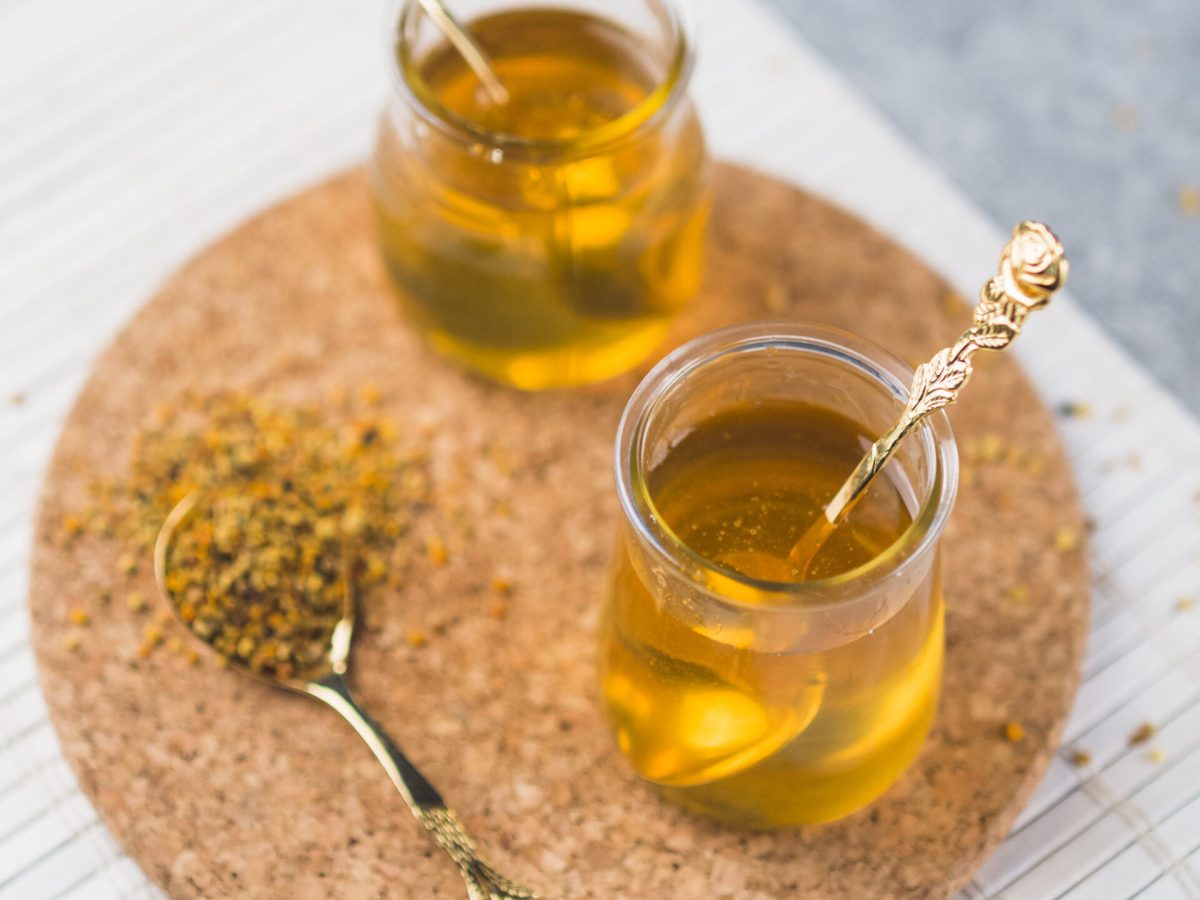
Valerian root is renowned for its natural ability to reduce anxiety and improve sleep quality. It contains compounds that interact with brain receptors to promote calmness and relaxation, making it useful for treating anxiety symptoms. Scientific research supports its efficacy, demonstrating that valerian root can help alleviate insomnia by improving sleep quality and shortening the time it takes to fall asleep.
Preparation: To make valerian root tea, steep 1-2 teaspoons dried valerian root in a cup of hot water for 10-15 minutes. Strain the tea and drink it before bedtime to relax and promote restful sleep.
8. Ashwagandha Tea
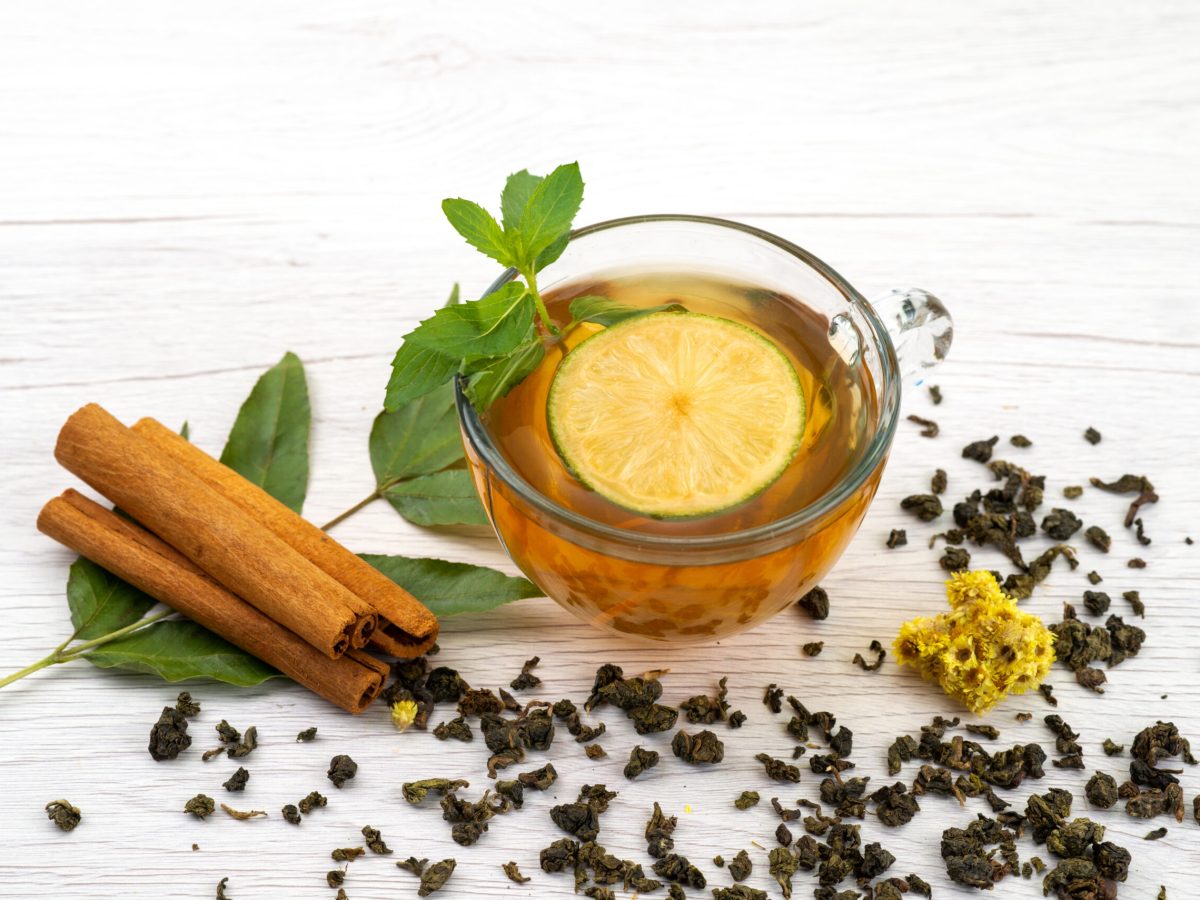
Ashwagandha, known for its adaptogenic properties, aids the body in stress management by regulating the stress hormone cortisol. This herb helps the adrenal glands, which play an important role in responding to stress, promoting overall resilience to stressors. Scientific studies show that ashwagandha can significantly reduce anxiety levels, comparable to pharmaceutical interventions, by calming the nervous system.
Preparation: To prepare ashwagandha tea, steep 1-2 teaspoons of powder or dried root in hot water for 5-10 minutes. Strain and drink this soothing tea every day to help with stress management and promote overall well-being.
9. Holy Basil (Tulsi) Tea
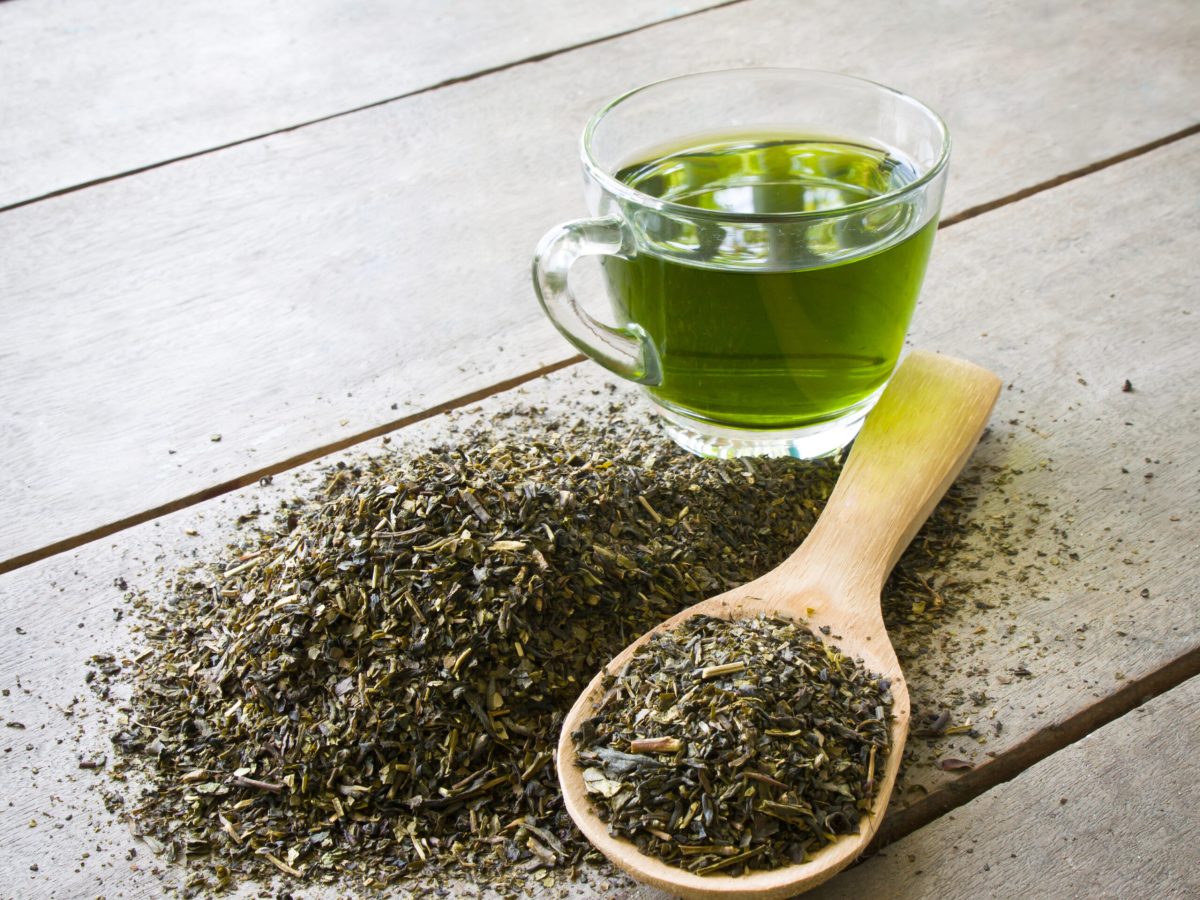
Holy basil, also known as tulsi, is well-known for its ability to relieve stress and improve overall health. It works as an adaptogen, allowing the body to adapt to stress and maintain balance. Tulip’s adaptogenic properties have been supported by scientific research, which shows that it can reduce stress hormone levels while also improving mental clarity and focus.
Preparation: To make holy basil tea, steep 1-2 teaspoons of dried tulsi leaves in a cup of hot water for 5–10 minutes. Strain the tea and add honey or lemon for flavoring. Drink this calming and health-promoting tea throughout the day to maintain your well-being.
10. Rose Tea
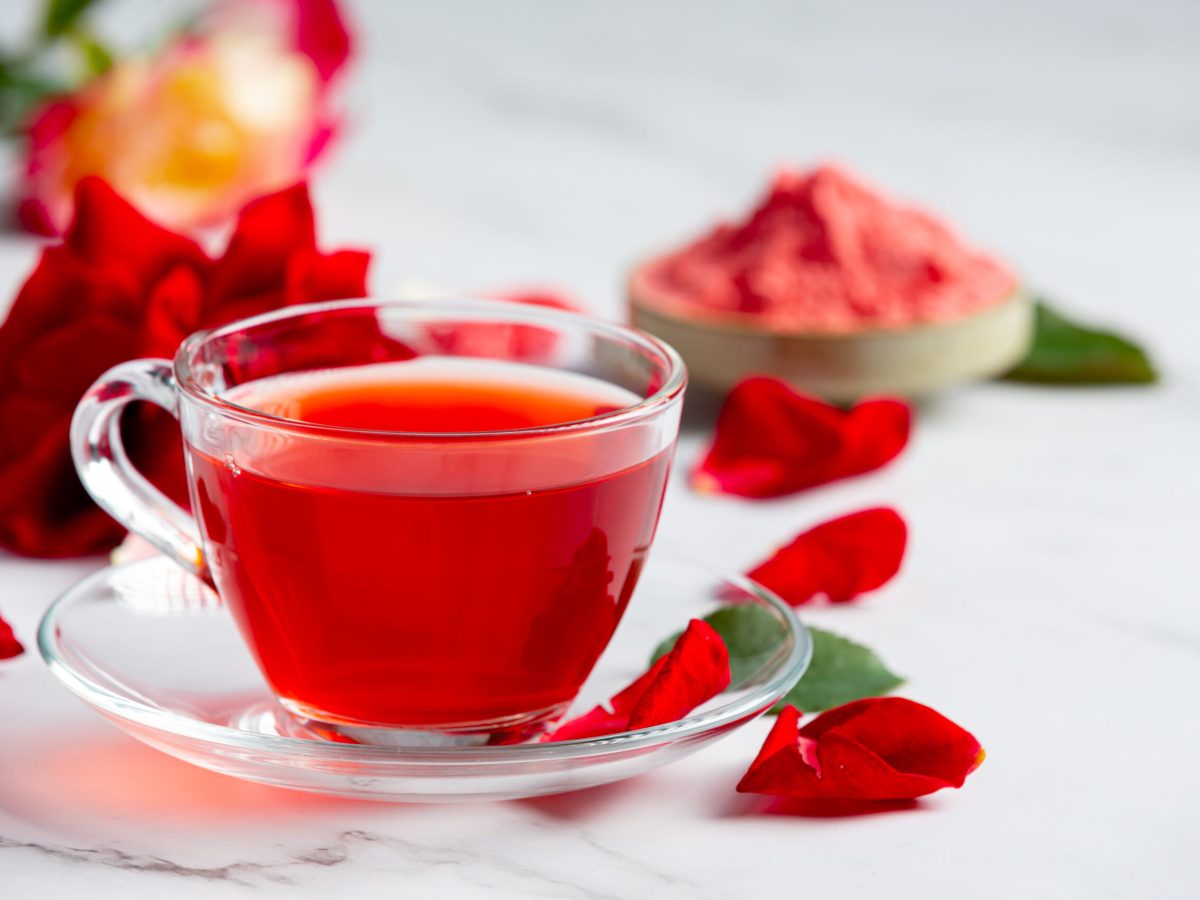
Rose tea is known for its calming properties, which can help reduce stress and promote relaxation. Scientific research supports these claims, indicating that compounds in rose petals may interact with neurotransmitters in the brain to produce a calming effect.
Preparation: To make rose tea, steep a handful of fresh or dried rose petals in hot water for 5-10 minutes. Strain the tea and enjoy the delicate floral aroma and relaxing effects. Rose tea is a gentle way to relax and soothe your senses, ideal for when you need a moment of calm.
Conclusion
Exploring these herbal teas revealed a wide range of benefits for anxiety and stress management. Chamomile, lavender, and lemon balm have calming properties that are ideal for relaxation, whereas passionflower and valerian root improve sleep quality. Ginger and peppermint aid digestion and provide a refreshing boost, while green tea and hibiscus contain antioxidants. Turmeric and cinnamon contain anti-inflammatory properties. Incorporating these teas into your daily routine can offer natural support for your mental and physical health. Try these herbal teas to help you live a calmer, more balanced life, and share your results below. Please let us know what other topics you want to learn about next!
FAQS
Popular herbal teas for anxiety relief include chamomile, lavender, passionflower, valerian root, and lemon balm.
Herbal teas contain natural compounds that interact with brain receptors to promote relaxation and lower stress hormones such as cortisol. They may also have calming effects on the nervous system.
Drinking herbal tea when you’re stressed or anxious is beneficial, as is incorporating it into your nighttime routine to promote relaxation before bed.
While generally safe, some people may experience mild side effects such as drowsiness, particularly with teas containing valerian root or passionflower.It’s best to start with small amounts and see how your body responds.
Yes, herbal teas can be used alongside other anxiety treatments such as therapy or medications. It is critical to consult your doctor before using any herbal supplements, especially if you are taking medications or have pre-existing health conditions.